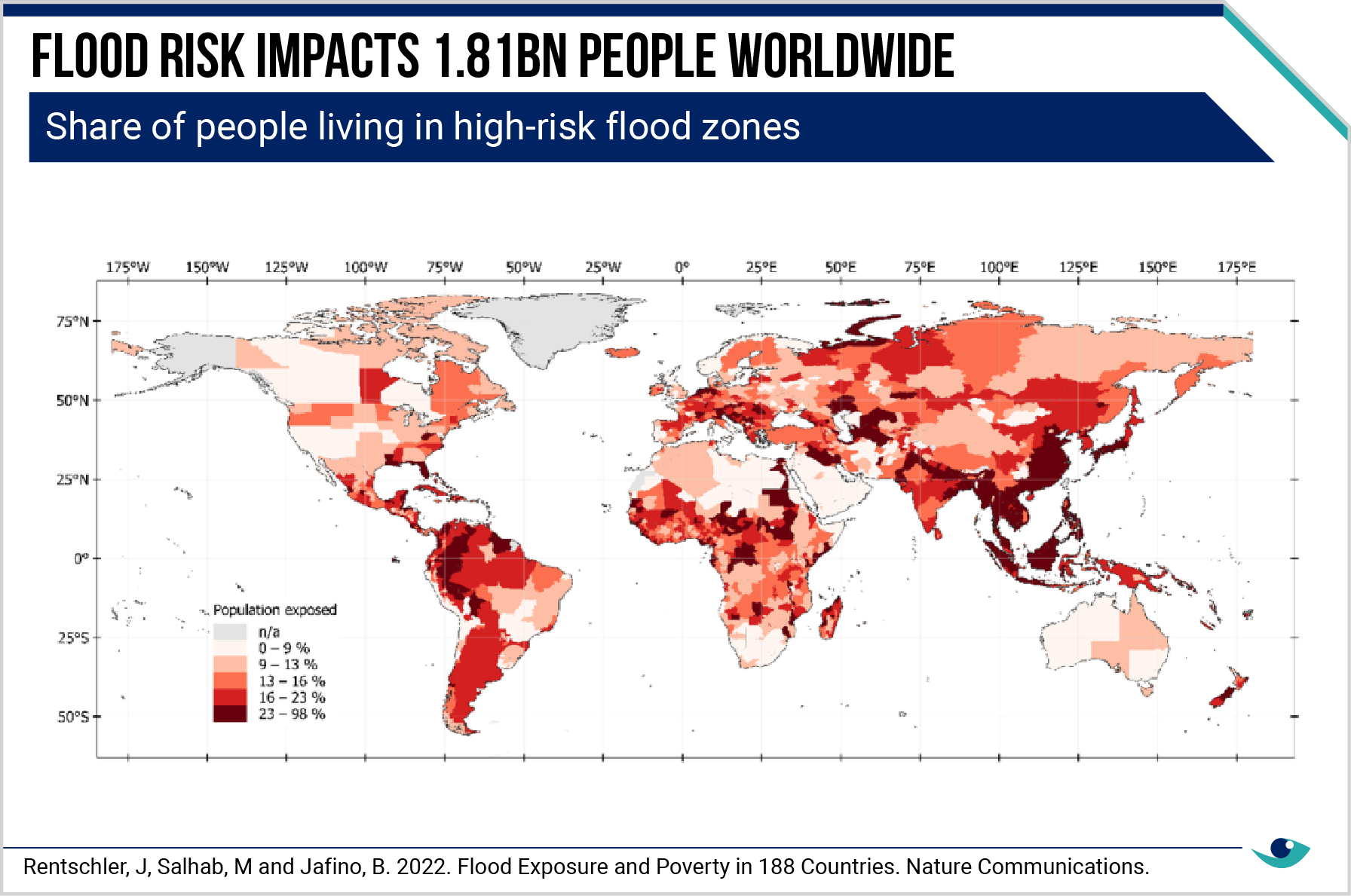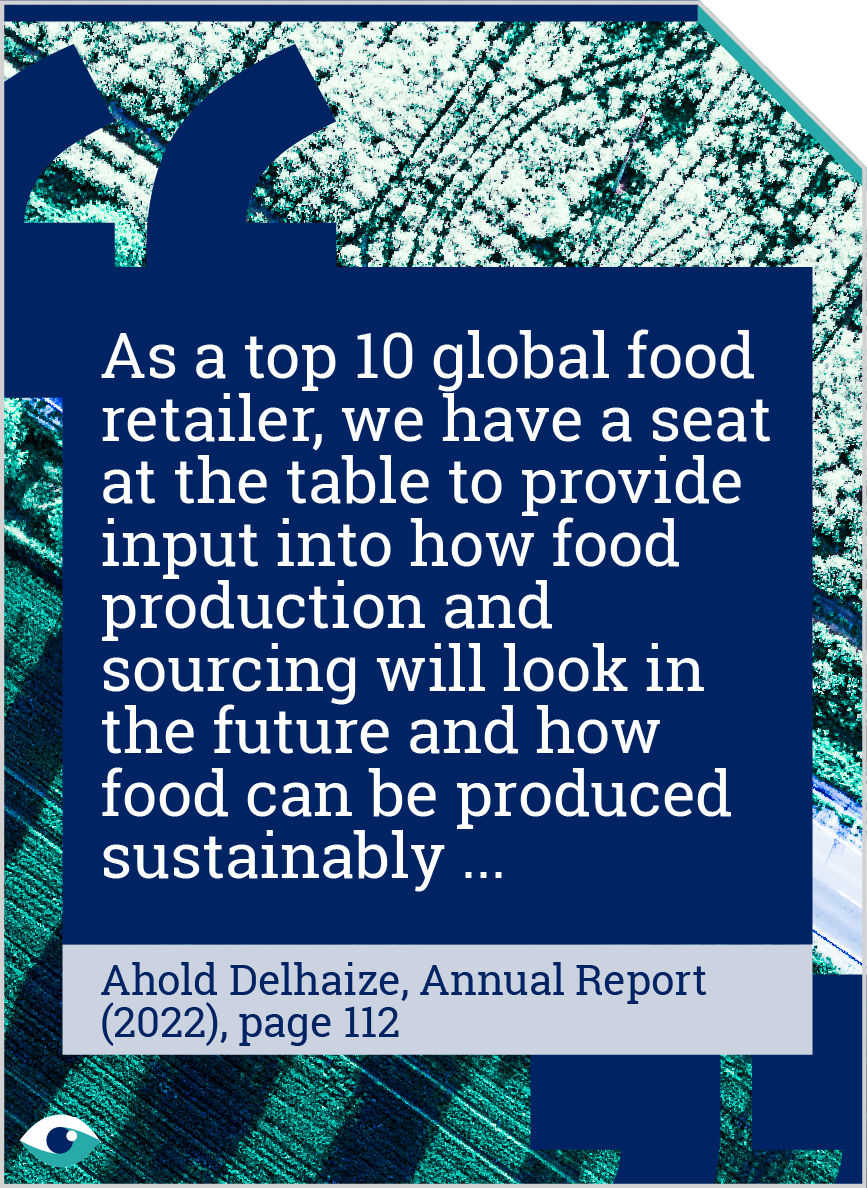Climate change and unplanned urbanisation in flood zones are likely to further increase flooding risks and damages, which exacerbates vulnerabilities in global agri-food systems. The World Bank estimates that 1.81 billion people or 23% of the world population, mostly from low and middle-income countries, are directly exposed to significant flood risk (flood depths greater than 0.15 meters in a 1-in-100-years flood event). There is an urgent call for the food sector to adapt and implement mitigation strategies to build resilience against anticipated damages, prevent loss of livelihoods and safeguard food security.

Food sector's resilience in the face of flood challenges
Proactive measures and collaborative solutions in the food industry
Nature & climate risks
Food & beverages (all industries)
Publication date: 01 Jul 2024
By Eye For Business
AT A GLANCE
Rising flood risks due to climate change affect 23% of the global population, especially in low and middle-income countries.
Key players in the food industry maintain resilience through risk modelling and engineering methods.
Sustainable farming and regenerative agriculture solutions emerge as key diversification sourcing strategies.
Flood preparedness measures
Leading agri-food organisations employ risk engineering to construct facilities that are resilient against floods, hurricanes and storms. Costco uses flood barriers, raises building foundations and implements watertight panels as precautionary measures. Seven&iHoldings also installs watertight panels in stores to prevent flooding. As part of preparations for potential disasters, Walmart conducts facility walks, roof checks and assesses mobile generators in the expected path of the storm.
Supply chain resilience
Dutch-Belgian company Ahold Delhaize procures property damage and business interruption insurance against weather-related events. In terms of procurement, the firm prioritises working with suppliers that invest in greenhouse facilities that suit regenerative agricultural practices. Ahold Delhaize and Costco also manage the risk of sourcing disruptions by collaborating with a large number of producers, using risk modelling tools to enhance planning and strengthen supply chains.

Sustainable farming practices
To combat climate threats, agricultural methods are adjusted to safeguard crops against increased flood, drought and erosion risks. Ahold Delhaize sells zero-kilometer products from rooftop urban farms. Carrefour supports suppliers shifting to organic and humane farming. Woolworths Group engages in projects like Regenerative Management Systems in New Zealand and the Australian Sustainable Agriculture Initiative to identify effective regenerative practices for its supply chains.

Community-level disaster effor
Walmart, Aldi, and Woolworths Group have actively participated in providing relief efforts, such as donations of food, funds and essential supplies to communities affected by floods, storms and hurricanes. Woolworths Group also financially supports affected local growers to aid them in the recovery process. By working together with communities and non-profits, these firms contribute to supporting short- and long-term recovery, complementing public sector efforts.
FURTHER READING
- Flood risk affects 1.81 billion people (World Bank)
- IPCC Sixth Assessment Report (IPCC)
- IPCC Sixth Assessment Report (Tomorrow.io)
